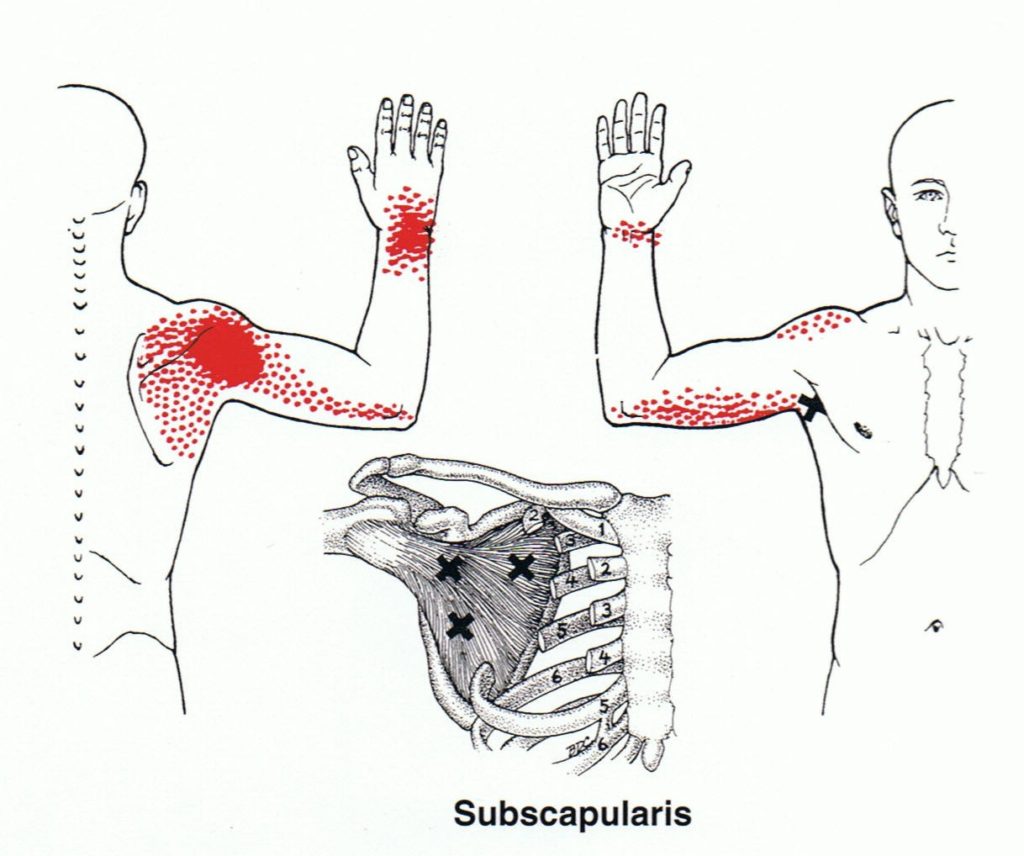

painful shoulder, infection shoulder
Stiff Shoulder / frozen shoulder.
A stiff or frozen shoulder will occur when a joint capsule has thickened and shrivelled. It makes the shoulder stiff and painful.
What is a frozen shoulder; Pain and procedure
Two percent to five percent of the Dutch population encounter a frozen shoulder in their life. The first signs are the slowly increasing limited mobility in the upper arm. An infection makes the joint capsule enclose the joint, shrivel up and thicken. That’s why the shoulder can’t make, at least not painless, all the movements required. The pain from a frozen shoulder can be nagging and/or stinging. It can be continuously or on and off , especially during the night. The pain is felt on the outer side of the shoulder and often in the upper arm. You are unable to move your arm properly even while assisted by someone. The pain occurs most clearly during activities such as dressing or undressing, reaching in high places and while driving a car.
Cause; In my experience I find that less or no sufficient activity using your upper arm or shoulder, lies at the bottom of this problem. A frozen shoulder for an example may also occur through an injury or after an operation in the shoulder area. The joint capsule may contract because of scar tissue. When for some reason the shoulder has been immobile for a while, a stiff shoulder can also occur. Working a long period of time above your head, upper hand car driving or working at your computer with no arm support or long time using the computer mouse can cause a frozen shoulder as well.
The course of a frozen shoulder can be divided into three periods;
Period 1 is the stiffening stage which can last between six weeks up until the maximum of nine months. The pain slowly increases while at the same time mobility decreases.
Period 2 is called the frozen or frozen stage. The pain slowly decreases but stiffness remains. This period may last as long up until four to nine months.
Period 3 is the final stage called the defrosting stage. The pain disappears more and more into the background and very slowly mobility returns to -practically-normal. Without proper therapy this whole period can take up to five months and two years of your time.
What can be done?
In the medical world the frozen shoulder is known as difficult to treat. An incorrect treatment or an extended delay of treatment, can result into a long healing process . The best advice I can give you is; Keep your upper arm and shoulder mobile, within your pain limit! I can teach you how. We can speed up the healing process through correct treatment and therapy. I can help you with guiding you during exercise and with Guasha therapy.
Complaints:
- Neumannlaan 27
- 5624 KL Eindhoven
- The Netherlands
- +31 (0)6 496 203 92
- info@oefentherapieeindhoven.nl


